 Bridging Patient Voice and CIPM Discussion for REMS Education, Podcast
Bridging Patient Voice and CIPM Discussion for REMS Education, Podcast
AACIPM is helping ensure that patient engagement and comprehensive integrative pain management are meaningfully included in mandated education for Risk Evaluation and Mitigation Strategy (REMS). You can listen to this new podcast (on Spotify or Apple Music) when Vanila Singh, MD, MACM and Maggie Buckley, BCPA, are talking about multimodal care from perspectives of a patient and provider. Please share with your interested networks!


 Research Spotlight
Research Spotlight
Duke Study Validates the Anecdotal Barriers to Whole Person, Evidence Based, Multimodal Pain Care
Innovation, leadership, and community-based collaboration are integral when building integrated, integrative pain care available for all people.
This qualitative study from Duke University describes how health care systems, payers, providers, health policy researchers, and other stakeholders are overcoming barriers to developing and sustaining IPM programs in real-world settings.
Four major themes and associated strategies emerged –
- navigating coverage, payment, and reimbursement (e.g., use of group visits, linked visits between billable and nonbillable providers, and development of value-based payment models);
- enacting organizational change (e.g., engagement of clinical and administrative champions and co-location of services);
- making a business case to stakeholders (e.g., demonstrating the ability to initially break even and potential to reduce downstream costs, while improving nonfinancial outcomes like patient satisfaction and provider burnout);
- and overcoming regulatory hurdles (e.g., innovative credentialing methods by leveraging available waivers and managed care contracting to expand access to IPM services.)
AACIPM is enthusiastic to work with Duke and others to leverage the lessons learned from existing programs that provide direction on how to grow and support person-centered, integrative delivery models across a variety of settings.

Scholarships for Providers Caring for Underserved
Integrative Pain Management Conf. May 5th, 2023
To grow and strengthen the CIPM workforce, AACIPM is thrilled to collaborate with IM4US and UVM to offer scholarships to providers caring for the underserved, who are unable to attend without this support.
Scholarship Application Deadline: April 21, 2023 for in-person attendance. Ongoing for virtual attendance.
Register Now – Early Bird Closes April 1
Specifically designed to meet the needs of an interdisciplinary health care community, the Second Integrative Pain Management Conference will be held on May 5, 2023, presented by The Osher Center for Integrative Health.
- General Public $200 (Early Bird Rate); or $275 (after April 1)
- Students $100 (Early Bird Rate); or $125 (after April 1)

Winners from AAPM + MIT Hacking Medicine 2nd Innovation Challenge
Digital Technologies for People with Pain
American Academy of Pain Medicine and MIT Hacking Medicine co-hosted their second annual Innovation Challenge on March 25 in Fort Lauderdale.
“It was truly an honor to be invited as a judge for this event focused on bringing effective digital technologies to people with pain. I am inspired by the innovation, dedication, and person-centered values of those involved,” said Amy Goldstein, AACIPM Director.
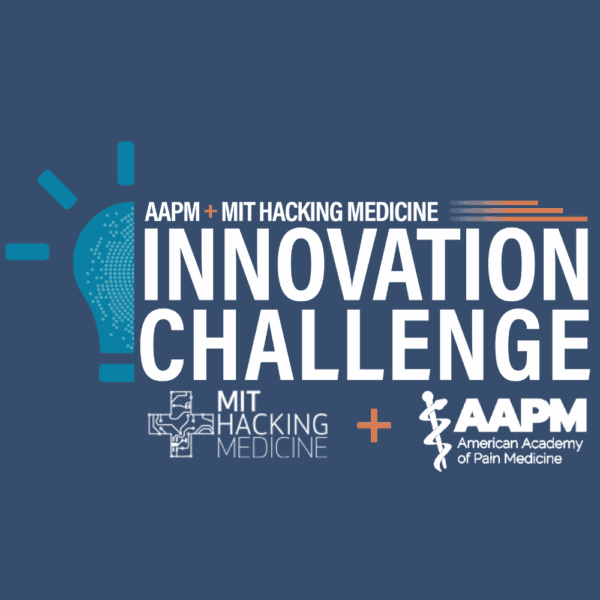

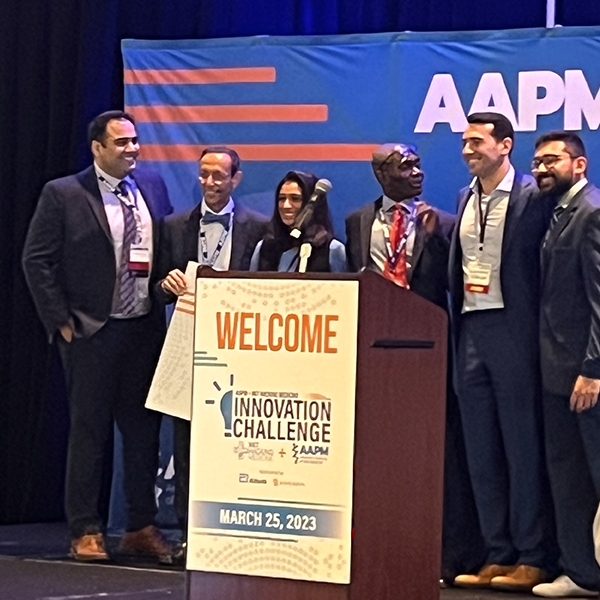
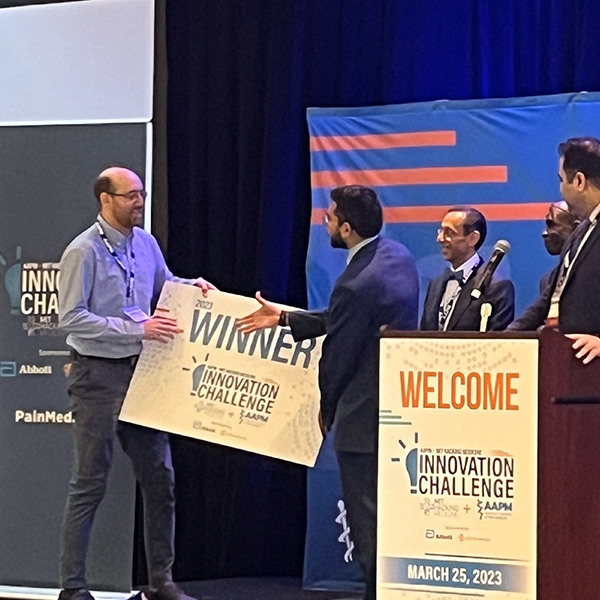
National Updates
New ASRA Guidelines Address Anesthesiology, Chronic Pain, and Screening for Cannabis Before Surgery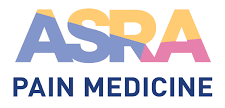 The American Society of Regional Anesthesia and Pain Medicine (ASRA) released new guidelines in early 2023 on the management of perioperative patients on cannabis and cannabinoids. The new ASRA guidelines – the first of their kind in the United States – set forth 21 recommendations covering preoperative, intraoperative, and immediate postoperative care considerations.
The American Society of Regional Anesthesia and Pain Medicine (ASRA) released new guidelines in early 2023 on the management of perioperative patients on cannabis and cannabinoids. The new ASRA guidelines – the first of their kind in the United States – set forth 21 recommendations covering preoperative, intraoperative, and immediate postoperative care considerations.
Chronic pain is one of the most common indications for medical cannabis prescriptions, and both cannabis and opioids are commonly used for pain management, and often together. Thus, it naturally follows that providers are concerned with if, and how, these substances interact with one another in the preoperative, perioperative, and postoperative settings.
To bring our stakeholders a full view of these new guidelines, we have compiled a number of articles which address them:
- ASRA Pain Medicine consensus guidelines on the management of the perioperative patient on cannabis and cannabinoids, Regional Anesthesia and Pain Medicine
- ASRA Guidelines Recommend Screening Patients for Cannabis Use Before Surgery, Practical Pain Management
- Cannabis Interactions Prompt New Guidelines from Anesthesiologists, Pittsburgh Post-Gazette
- New Guidelines Recommend Screening All Surgery Candidates for Cannabis Use, Breastcancer.org
- Patients Should Be Screened for Cannabis Use Before Surgery, Say New Guidelines, Analytical Cannabis
- ASRA Guidelines
Pain Management Collaboratory Working Toward Whole Person Approach in the VA and DoD With up to 44% of soldiers experiencing chronic pain, and 15% using opioids after a combat deployment, the implementation and evaluation of nondrug approaches for the management of pain is urgently needed in the military. In 2017, in order to address this issue, the National Institutes of Health forged a partnership with the U.S. Department of Defense (DoD) and U.S. Department of Veteran’s Affairs (VA) to establish the Pain Management Collaboratory (PMC). The PMC supports a shared resource center and 11 large-scale pragmatic clinical trials, enrolling more than 8,200 study participants across 42 veteran and military health systems. Central to the PMC partnership is whole person health—a central focus of NCCIH’s current Strategic Plan—recognizing that health exists across multiple interconnected body systems and domains: biological, behavioral, social, and environmental. While PMC’s research specifically targets the military community, their growing body of evidence will ultimately benefit the general public as well.
With up to 44% of soldiers experiencing chronic pain, and 15% using opioids after a combat deployment, the implementation and evaluation of nondrug approaches for the management of pain is urgently needed in the military. In 2017, in order to address this issue, the National Institutes of Health forged a partnership with the U.S. Department of Defense (DoD) and U.S. Department of Veteran’s Affairs (VA) to establish the Pain Management Collaboratory (PMC). The PMC supports a shared resource center and 11 large-scale pragmatic clinical trials, enrolling more than 8,200 study participants across 42 veteran and military health systems. Central to the PMC partnership is whole person health—a central focus of NCCIH’s current Strategic Plan—recognizing that health exists across multiple interconnected body systems and domains: biological, behavioral, social, and environmental. While PMC’s research specifically targets the military community, their growing body of evidence will ultimately benefit the general public as well.
 The VA has released a toolbox of information, resources, and tools titled Chronic Pain 101: How to Break the Cycle. Developed for both Veterans the patients within the general public, the toolbox includes information on exercise and physical therapy, healthy lifestyle choices, communication skills, cognitive behavioral therapy, management of opioid therapy, psychological factors, and more.
The VA has released a toolbox of information, resources, and tools titled Chronic Pain 101: How to Break the Cycle. Developed for both Veterans the patients within the general public, the toolbox includes information on exercise and physical therapy, healthy lifestyle choices, communication skills, cognitive behavioral therapy, management of opioid therapy, psychological factors, and more.NIDA Releases Compilation of CME/CE Courses on Pain, Opioids, and Substance Use Disorder![]() In order to provide access to relevant CME/CE courses on topics related to pain management, opioid prescribing, overdose, and stigma, the National Institute on Drug Abuse (NIDA) has compiled a list of relevant education for providers. In addition to numerous courses on opioid use disorder and stigmatizing language, the courses also focus on opioid prescribing, naloxone use in the school setting, acute pain management, safe prescribing for dental pain, adolescent use, motivational interviewing, and more.
In order to provide access to relevant CME/CE courses on topics related to pain management, opioid prescribing, overdose, and stigma, the National Institute on Drug Abuse (NIDA) has compiled a list of relevant education for providers. In addition to numerous courses on opioid use disorder and stigmatizing language, the courses also focus on opioid prescribing, naloxone use in the school setting, acute pain management, safe prescribing for dental pain, adolescent use, motivational interviewing, and more.
CDC Releases Guidance and Resources on How to Implement 2022 Opioid Guideline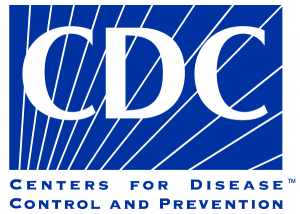 In order to aid clinicians and health systems, CDC has released updated information and resources on how to implement its 2022 CDC Clinical Practice Guideline for Prescribing Opioids for Pain (2022 Clinical Practice Guideline). The 2022 Clinical Practice Guideline includes 12 recommendations for clinicians providing pain care for outpatients aged 18 years or older with acute pain (duration less than 1 month), subacute pain (duration of 1-3 months), or chronic pain (duration of more than 3 months). The 12 recommendations help clinicians to (1) determine whether or not to initiate opioids for pain, (2) select opioids and determine dosages, (3) decide duration of initial prescription and conduct a follow-up, and (4) assess risk and address potential harms of opioid use. The clinical practice guideline provides recommendations only, and it does not replace clinical judgment and individualized, patient-centered decision-making.
In order to aid clinicians and health systems, CDC has released updated information and resources on how to implement its 2022 CDC Clinical Practice Guideline for Prescribing Opioids for Pain (2022 Clinical Practice Guideline). The 2022 Clinical Practice Guideline includes 12 recommendations for clinicians providing pain care for outpatients aged 18 years or older with acute pain (duration less than 1 month), subacute pain (duration of 1-3 months), or chronic pain (duration of more than 3 months). The 12 recommendations help clinicians to (1) determine whether or not to initiate opioids for pain, (2) select opioids and determine dosages, (3) decide duration of initial prescription and conduct a follow-up, and (4) assess risk and address potential harms of opioid use. The clinical practice guideline provides recommendations only, and it does not replace clinical judgment and individualized, patient-centered decision-making.
ICYMI
NCCIH Releases Summary of the Stakeholder Meeting for Research on Whole Person Health As a follow-up to their October meeting, NCCIH has released a meeting summary of their Stakeholder Meeting for Research on Whole Person Health. The meeting was attended by delegates representing acupuncture, yoga therapy, chiropractic, osteopathic medicine, physical therapy, somatic movement therapy, massage therapy, physicians’ assistants, nursing, naturopathic medicine, homeopathy, Ayurvedic medicine, energy psychology, music therapy, integrative health organizations, patient advocacy and research organizations, and government organizations.
As a follow-up to their October meeting, NCCIH has released a meeting summary of their Stakeholder Meeting for Research on Whole Person Health. The meeting was attended by delegates representing acupuncture, yoga therapy, chiropractic, osteopathic medicine, physical therapy, somatic movement therapy, massage therapy, physicians’ assistants, nursing, naturopathic medicine, homeopathy, Ayurvedic medicine, energy psychology, music therapy, integrative health organizations, patient advocacy and research organizations, and government organizations.
AACIPM offered testimony at the meeting in regard to what needs to be done to close the gap between guideline-concordant integrative care and currently lacking public and private insurance coverage of these therapies—and importantly, what can be done to close this gap.
New CMS Pain Codes – Moving to Dissemination and Implementation As previously reported, CMS has released new pain codes, effective Jan. 1, 2023. To continue to spread awareness of these codes, and to aid in their uptake, AACIPM has compiled a number of helpful resources:
As previously reported, CMS has released new pain codes, effective Jan. 1, 2023. To continue to spread awareness of these codes, and to aid in their uptake, AACIPM has compiled a number of helpful resources:
- CMS Pain Management Codes for 2023
- Calendar Year (CY) 2023 Medicare Physician Fee Schedule Final Rule | CMS
- CMS Creates New Pain Management Codes Heeding Advice of AACIPM – Alliance to Advance Comprehensive Integrative Pain Management
- Reimbursement for Chronic Pain Management in the 2023 Medicare Physician Fee Schedule: New Opportunities for Patients and Providers — Nixon Gwilt Law.
- The Centers for Medicare and Medicaid Services (CMS) Makes a Major Move to Improve Pain Care – U.S. Pain Foundation
- CMS Pain Management Codes for 2023 – Practical Pain Management
We look forward to hearing from all of you regarding your use of these codes and/or the barriers you experience regarding their use. Please contact Amy Goldstein with any feedback.
Message from the Director
 Happy Spring to all of you! I am so inspired after visiting with so many mission-driven leaders during recent meetings, such as NIH Heal Initiative, Academic Consortium of Integrative Medicine & Health, and American Academy of Pain Medicine + MIT Hacking Medicine.
Happy Spring to all of you! I am so inspired after visiting with so many mission-driven leaders during recent meetings, such as NIH Heal Initiative, Academic Consortium of Integrative Medicine & Health, and American Academy of Pain Medicine + MIT Hacking Medicine.
There is a great deal of collaboration and innovation happening to meet the needs of people living with pain. That said, there is also an enormous opportunity to connect more dots and target important awareness to impact future research, practice and policy. Examples include: 1) supporting dissemination and implementation of new CMS Pain Codes, and 2) promoting pain education scholarships to healthcare providers caring for people who are underserved.
That intersection remains the sweet spot for AACPIM and we look forward to what lies ahead.
Onward and Upward!
Amy
Relevant Reading
![]()
PODCAST: Masterclass – Mindful Stress Management for the Healthcare Professional, Integrative Pain Science Institute, March 29
Patients with chronic pain value empathic doctors who validate concerns and communicate clearly, Medical Xpress, March 28
Chronic pain: the long road to discovery, Nature, March 28
Why a Chronic Lack of Sleep Causes More Harm Than Good, Pittsburgh Magazine, March 28
Why Disability Rights Are Everyone’s Rights, Psychology Today, March 25
Tele-Pain and Patient-Centered Initiative Earns Ready Reliable Care, High Reliability Organization Award, Walter Reed National Military Medical Center, March 23
Demographic Factors May Impact Pain Management Referrals in SCLC/NSCLC, Cancer Network, March 15
Coping With Chronic Pain: A Psychiatrist’s Personal Journey, Psychology Today, March 11
Older Patients Shown to Exhibit Better Pain Relief, Quality of Life Than Younger Patients Following Total Knee Arthroplasty, AAOS, March 7
Brainstem volume changes in myalgic encephalomyelitis/chronic fatigue syndrome and long COVID patients, Frontiers in Medicine, March 2
Elevated dementia risk, cognitive decline, and hippocampal atrophy in multisite chronic pain, PNAS, February 21
Feedback
We welcome your input! What do you like? Do you have a contribution for an upcoming newsletter? Send us your comments, suggestions, or contributions.
